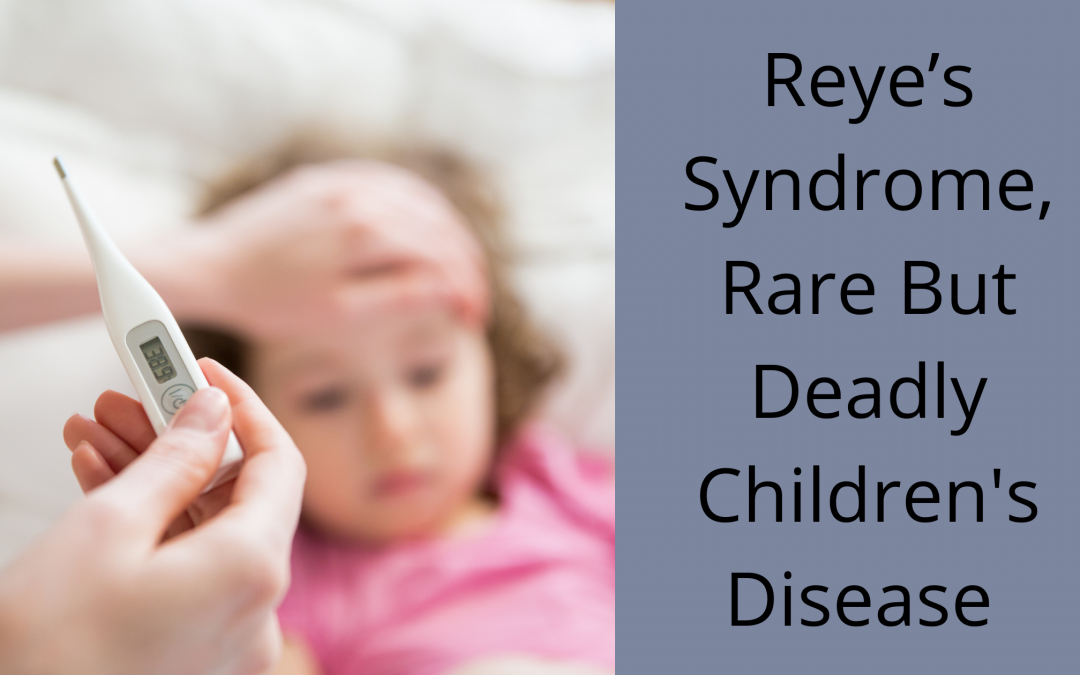Let’s get this said first. This month’s subject is Reye’s Syndrome— and it is rare. So, why talk about it? Because it produces brain and liver damage. Because it is most often seen in children. Because if not treated promptly, it may lead to permanent brain injury or death.
Reye’s Syndrome affects children and teenagers most often recovering from a viral infection, such as the flu or chickenpox. But it’s not the diseases that set off a chain of events.
Reye’s Syndrome seems to be triggered when using aspirin to treat viral illness or infection in children and teenagers who have fatty acid oxidation disorder. Both chickenpox and the flu can cause headaches. So it is a natural move for a parent to give a child aspirin. But don’t. Better to check with your child’s doctor about the best medicines to use. Acetaminophen may be a better choice.
The signs of Reye’s Syndrome typically appear 3 to 5 days after the start of a viral infection. Symptoms may include:
- Aggressiveness
- Altered mental state
- Confusion
- Decreased level of consciousness or loss of consciousness
- Diarrhea
- Excessive sleepiness/lethargy
- Hallucinations
- Irritability
- Personality changes
- Rapid breathing
- Rash on palms of hands and feet
- Repeated vomiting
- Seizures
- Weakness of the arms and legs
Any one of these, or a combination of symptoms, is cause for contacting your doctor. Signs and symptoms such as confusion, seizures, and loss of consciousness require emergency treatment. Early diagnosis and treatment of Reye’s Syndrome can save a child’s life.
This is especially of concern in North Carolina. According to the National Organization for Rare Disorders, “Evidence suggests that children and adolescents in rural and suburban areas appear to be affected more frequently than those in urban areas.”
What You Can Do At Home
Again, to repeat, Reye’s Syndrome is rare these days with more parents understanding the need to avoid giving aspirin to children. But, if you see any of these symptoms appearing after flu or chickenpox, take these steps while awaiting instructions from your doctor.
Vomiting is common with Reye’s Syndrome. You need to keep your child’s body nourished. It may be hard to keep fluids down. So go with small sips. Proper hydration is a key to recovery.
The internal body temperature of your child going up is also of concern. Try to copy the cooling blanket procedure used in hospitals. Use cold washcloths and ice packs.
According to Reye’s Syndrome org website “Reye’s Syndrome tends to appear with greatest frequency during January, February, and March when influenza is most common.” With the certainty of COVID19 continuing to affect overworked hospitals and physicians, it is most important that parents pay attention to ANY unusual health symptoms of their kids to make sure they can get speedy & proper treatment when needed.
This post was written by Anthony M Scialis. Find him here.

